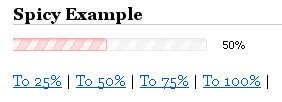JavaScript Exercise: Find the Number of Unique Letters in a String
Everyone once in a while it's good to complete a fun vanilla JavaScript exercise. One recent exercise I tried was to find the number of occurrences of each letter in specified string. The following was my method.
The JavaScript
/* returns the size/length of an object */
Object.size = function(obj) {
var size = 0;
for(key in obj) {
if(obj.hasOwnProperty(key)) size++;
}
return size;
}
//initial vars
var str = 'hellodavidthisisatestofobjectusage';
var letters = new Object;
//loop, figure it out
for(x = 0, length = str.length; x < length; x++) {
var l = str.charAt(x)
letters[l] = (isNaN(letters[l]) ? 1 : letters[l] + 1);
}
//output count!
for(key in letters) {
console.log(key + ' :: ' + letters[key]);
}
console.log(Object.size(letters));
The Result
h :: 2 e :: 4 l :: 2 o :: 3 d :: 2 a :: 3 v :: 1 i :: 3 t :: 4 s :: 4 f :: 1 b :: 1 j :: 1 c :: 1 u :: 1 g :: 1 16
The above results in 20 letters being found
Have a different solution? Share it!




This looks like the beginning of a simple javascript word game…you get the letters and amount of times they occur and then have to figure out the string.
Here’s my attempt:
var str = 'hellodavidthisisatestofobjectusage'; var uniq = ''; for (var i = 0; i< str.length; i++) { if(uniq.indexOf( str[i] ) == -1){ uniq += str[i]; } } console.log(uniq.length);This is probably self explanatory but it goes through and checks if the character is in the “uniq”ue string. If not, it adds it to the end. Then it just determines the length of the unique string, since all characters contained within are… unique. It’s basically the same as yours but it saves having to loop through the object keys just to get a count. I feel like there’s a regex way of doing this but I’m not sure how.
Walsh, u certainly know how to perform the easiest task in the toughest way.
My intention Rakesh was to keep the number of times each appeared — which I now realize I didn’t state. Jonathan’s solution looks great.
My attempt:
function letterCount(str) { var ret = {}, len = str.length; str = str.split('').reverse(); while (len--) ret[str[len]] = ret[str[len]] + 1 || 1; return ret; }It iterates (in reverse) through the string and adds a new property of that character to the returned object. It iterates in reverse because that’s quicker than the alternative – i.e. having to check the length property on every iteration…
function getCharCounts(s) { var letters = {}; s.replace(/\S/g, function(l){letters[l] = (isNaN(letters[l]) ? 1 : letters[l] + 1);}); return letters; } console.log(getCharCounts('hellodavidthisishowtodoitwithregularexpressions'));I forgot to mention, my function returns a very usable object, constructed like this: { h: 2, e: 4, l: 2, o: 3, etc…. }
Oooh, I like that James.
This is fun. :)
var str = “hellodavidthisisatestofobjectusage”;
var letters = {};
for (var x = 0, y = str.length; x < y; x++) {
letters[str[x]] = letters[str[x]] + 1 || 1;
}
hah! I just realized that the whole thing could be made smaller:
var str = “hellodavidthisisatestofobjectusage”, letters = {};
for (var x = 0, y = str.length; x < y; x++) letters[str[x]] = letters[str[x]] + 1 || 1;
^^b
Nice one keeto, this makes mine smaller too:
var str='thisisultrashortwithregexps', letters={}; s.replace(/\S/g, function(l){letters[l]=letters[l]+1||1);});Cute one, grigri. Although I forgot I could make mine even shorter:
var str=’thisisultrashortwithregexps’, letters={};
for (var x in str) letters[str[x]] = letters[str[x]] + 1 || 1;
More David! More!
Great solutions everyone! I added the Object.size() to be able to show a result so mine is pretty close to everyone’s.
More in the future?
@Gri: nice use of regex.
I like @grigri, with the correction of \w instead of \S because the OP said ‘letters’ :)
Taking that into account, that’s the solution that most elegantly lets you count letters alone.
This might be a great read:
http://dreaminginjavascript.wordpress.com/2008/08/22/eliminating-duplicates/
Not the same thing, but brilliant as well.
I am currently learning python so I did:
s = ‘thisissomestringwithsomechars’
count = {}
for c in s:
count[c] = count.get(c,0) + 1
print count
Which outputs:
{‘a’: 1, ‘c’: 1, ‘e’: 2, ‘g’: 1, ‘i’: 4, ‘h’: 3, ‘m’: 2, ‘o’: 2, ‘n’: 1, ‘s’: 6, ‘r’: 2, ‘t’: 3, ‘w’: 1}
I m new to javascript.
I want to find no of unique letters in a string using javascript.
pls help me out
Using reduce,
function getLetterCount(arr){ return arr.reduce(function(prev,next){ prev[next] = (prev[next] + 1) || 1; return prev; },{}); } console.log(getLetterCount("dfglksdhfglhjhkdjfhgfdg".split('')));